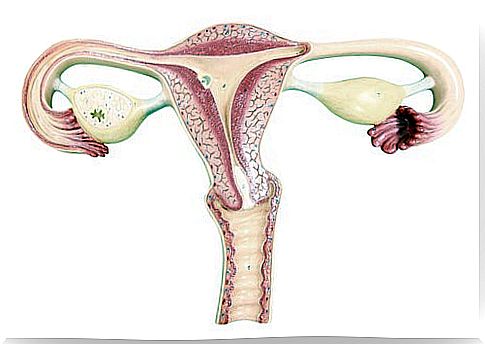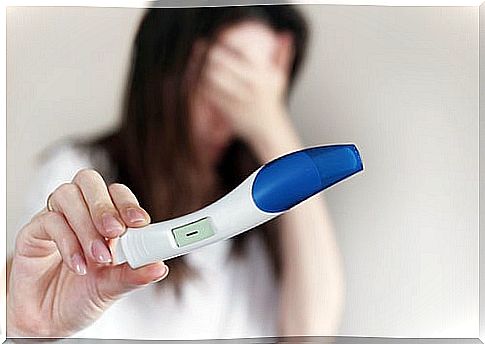The 6 Main Causes Of Female Infertility
The meaning of infertility is the inability to have a child. That is, pregnancy occurs but, for some reason, it does not end. Medically speaking, infertility does not present serious problems. However, socially it is a heavy burden for women who want to start a family, since it is often assumed that all can beget a child.
Meanwhile, sterility is one thing and infertility is another. They have been erroneously used as synonyms.
- In the case of being sterile, pregnancy is not even achieved. For gestation to be achieved, it is necessary for the woman to have a competent reproductive system, at a structural and functional level.
- On the other hand, it is determined that there is infertility after 1 year of trying to conceive, or if the patient has had spontaneous abortions.
Fortunately, in the second case, there are treatments to correct the problem and increase the chances of having a baby later.
What are the causes?
In general, the causes of infertility come to be the following to be mentioned. It is important that, in case of doubts, the woman goes to the doctor to detect the real cause in her case, since each body is different and it is essential to treat it appropriately, according to its particularities.
Fallopian tube problems

When there are problems of damage or obstruction in the fallopian tubes, it is impossible for the sperm to reach the egg.
This is because there is inflammation in the pelvis, which can be due to sexually transmitted infections or due to surgeries in the abdominal region.
- Fallopian tube repair is possible but the results are not as good.
- The ideal is in vitro fertilization (IVF) since it replaces the function of the tubes and fertilization is carried out in the laboratory.
Endometriosis
The endometriosis happens when cells lining the matrix grow in other areas of the body.
They usually attach to the ovaries and other organs near the pelvis, forming small islands of endometrium outside the uterus.
Among the main symptoms are:
- Painful menstrual periods
- Pain when having sex.
- Stitches in the pelvis.
It is important that the gynecologist indicates the treatment, since there are from pills to medical therapy, including surgery.
Polycystic ovary syndrome

Syndrome Polycystic ovary (PCOS) occurs when a woman has alterations in female sex hormones. The patient presents the following:
- Cysts
- Infertility
- Changes in the menstrual cycle.
- Enlargement of the ovaries.
To treat it, the specialist may indicate treatment based on drugs, hormones and in some cases surgery to remove the cysts.
Early menopause
When the date of the last period arrives it means that there will no longer be ovarian follicular activity. However, in some cases, menopause occurs early despite not having reached the average age of 40 years.
Among the most common causes are:
- Infections
- Obesity.
- Genetic alterations.
- Side effects of radio or chemotherapy.
Thyroid problems

The thyroid gland is in charge of controlling the hormones that are in the body and in this way maintaining the metabolism.
However, when there are disturbances, thyroid hormones interact with female sex hormones (estrogens and progesterone) that help the ovaries function.
When there is excess (hyperthyroidism) or not producing enough hormones (which is called hypothyroidism) and problems such as:
- Abnormal menstrual cycles
- Termination of pregnancy.
- Miscarriages.
- Premature delivery
- Absence of ovules.
Therefore, it is necessary for the doctor to prescribe an adequate treatment to regulate the function of the thyroid.
Polyps in the uterus
It happens when there is an abnormality in the cells that make up the inner wall of the uterus or fallopian tubes. That is, the endometrium increases in size.
Polyps in the uterus are one of the causes of infertility, because they make it difficult for the sperm to travel to the egg, or it hinders the implantation of the embryo in the endometrium, causing spontaneous abortion.
The treatment indicated is hysteroscopy, which consists of removing the polyps in order to analyze the tissue and indicate the appropriate medication.
Risk factors for infertility

- Stress.
- Alcoholism.
- Smoking
- Extreme diets.
- Be over 35 years of age.
- Intense and constant physical activity.
- Frequent exposure to pesticides or lead.
- Drastic weight gain or loss.
- Depending on the case, it may be some contraceptive methods (because they cause irregularities in ovulations).
Do not forget that, before any concern and abnormal bleeding, it is essential to see a doctor. Avoid self-medication, ignore the symptoms and resort to measures that may put your health at risk.
Remember that if you suspect that you suffer from infertility, you should go to your doctor for a timely and personalized review and diagnosis and treatment.








